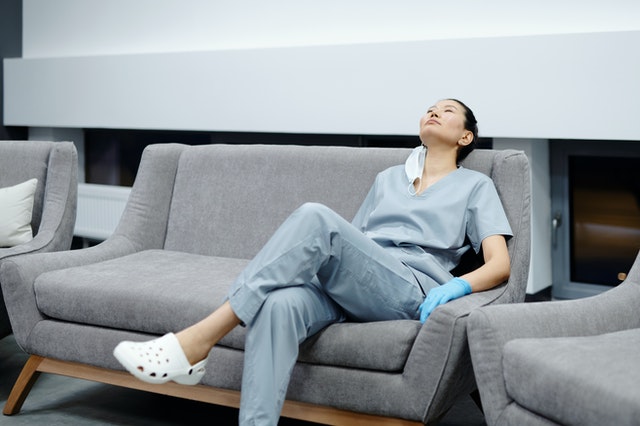
Looking After Yourself – An Open Letter to Students in Healthcare Degrees
Let’s face it, even in the early stages of your education and/or career, you know more about health care than most, and you know more about working in a health care environment than you have ever known before. You are in a key position to decide if you are going to push forward with your training and career, if your path is going to diverge a little, or if you are going to try a different career with perhaps a different variety of training or education.
This article aims to stop the perpetuation of some of the medical career myths that still exist, and challenges you to consider simple things that are essential for study, work, and wellbeing. Sleep, managing your emotions and getting balance.
Learn How to Value Sleep
Valuing sleep is important. Stop and think for a moment. Do you really see sleep as an important part of your life? Or are you pulling all-nighters to cram before an exam, or getting assignments done at the last minute? Have you considered how these habits could transfer across to when you are a healthcare practitioner and impact your ability to provide high-quality patient care? Do you think it is sustainable for your own wellbeing to be fatigued frequently across the span of your career?
Perhaps now is the time to learn the value of sleep.
The medical profession is taking doctors wellbeing seriously. Commenting on the second Medical Training Survey, Australian Medical Association President Dr Omar Khorshid said “the results show we have more work to do to address long standing issues we know we can do better on – unpaid overtime and excessive hours being worked.” Dr Hash Abdeen, Chair of the AMA Council of Doctors in Training (CDT), said “turning a blind eye to practices that allow doctors to work excessive hours of unpaid, unrostered overtime is not only inefficient and unproductive, but puts patient care and doctor wellbeing at risk.”
Keen to pursue healthy sleep? Health Direct have 10 tips, including spending the right amount of time in bed, being comfortable in your bedroom, avoiding alcohol, caffeine and cigarettes, and asking for help if you need it.
Professionalism is Not the Same as Repression
Of course professionalism in health care does not mean repressing your emotions altogether. However, it would be disconcerting to a patient if their healthcare professional burst into tears when delivering bad news. It is natural for those in health care to at times feel saddened by the human suffering they see. You do need to remain professional while working with patients and fellow staff members, and it is also important to work through your emotions at and appropriate time and in a way that works best for you.
The Mental Health and Wellbeing Survey of Australian Optometrists showed that younger age and burnout were significant risk factors for psychological distress. Interventions, especially for younger optometrists, were suggested, and include workplace modifications and building resilience to improve personal mental wellbeing and ensure patient safety.
Rebuild Balance in Your Life
A 2021 survey of nurses and midwives in South Australia showed that fatigue and burnout levels are higher than they have ever been. Depersonalisation, which can be described as being a detached observer of oneself, or where people feel like the world has become dreamlike, has been shown to be highest among those who had:
- Worked double shifts
- Were aged under 30 years
- Had 1-10 years of professional experience
- Plans to exit their role within the next 12 months
The survey results have led to the Australian Nursing and Midwifery Federation (SA Branch) being concerned that there could be a generational loss of younger nurses due to the pressure placed on them by working in demanding and fatiguing environments. It is clear that in particular, younger health care professionals need to find balance to continue in their profession.
Keen to really consider what balance might look like for you? EduMed has 10 tips, which include creating a realistic schedule, learning to say no, creating time at home and finding creative exercise.
Just like you might seek a mentor for a technical skill in your profession, think about different types of career mentors. You might also want to make a point of seeking out experienced health care professionals who maintain balance in their lives and ask them how they do it!
